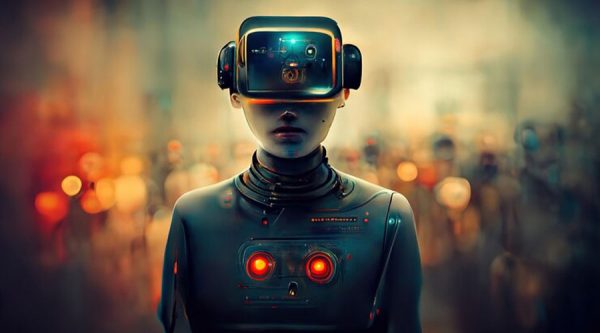Automation has advanced significantly in recent years as a result of the confluence of machine learning and robotics, with intelligent robots becoming more and more crucial in a range of industries. Artificial intelligence (AI) powers machine learning algorithms, which are transforming robotics by enabling robots to sense, learn, and adapt to their environment in real time. We will explore how machine learning is influencing robotics and ushering in a new era of automation in this piece.
Improved Sensing and Perception
Robotics is being revolutionized by machine learning, which enhances robot perception and sensing skills. Deep learning algorithms and computer vision techniques have made it possible for robots to autonomously explore complicated areas, detect objects, and interpret visual data. Robots can now make judgments in real time and possess a perfect understanding of their environment thanks to machine learning, which helps them interpret sensor data from cameras, LiDAR, and other sensors.
Facilitating flexible and perceptive conduct
Robots are capable of intelligent and adaptable behavior thanks to machine learning algorithms, which help them gain experience and become more proficient over time. Robots can interact with their surroundings, get feedback about what they’ve done, and modify their behavior using reinforcement learning techniques. This makes it possible for robots to pick up activities like grasping items, navigating around obstacles, and carrying out intricate operations with accuracy and dexterity on their own.
Enhancing Self-Driving Systems
The development of autonomous systems, which enable robots to function autonomously and without human intervention, depends heavily on machine learning. Machine learning algorithms enable autonomous robots to sense their environment, choose the best course of action, and carry out tasks in erratic and dynamic environments. This has important ramifications for a number of sectors, including manufacturing, logistics, agriculture, and healthcare, where autonomous robots can increase production, safety, and efficiency.
Facilitating Human-Robot Cooperation
Collaborative robots (cobots) are robots that can effectively work with people in shared workspaces thanks to machine learning. These robots are meant to work alongside people, supporting them in tasks that call for manual dexterity, strength, or repetitive motion. Cobots can predict human behavior, adapt to it, and offer safe and effective help thanks to machine learning algorithms. This increases worker safety and efficiency.
Enabling Tailored and Personalized Services
Robots may now offer individualized and tailored services depending on each customer’s preferences and requirements thanks to machine learning algorithms. Robots with machine learning capabilities can engage with customers in businesses like retail, hospitality, and healthcare to learn about their preferences and deliver tailored advice and assistance. This raises customer satisfaction, promotes interaction, and propels company expansion in a market that is getting more and more competitive.
Activating Swarm Automation
The advancement of swarm robotics systems, where multiple robots work together to accomplish shared objectives, is being aided by machine learning. Swarm robotics coordinates the movements of individual robots using distributed algorithms and decentralized control, enabling them to accomplish tasks collectively and instantly adapt to changing situations. Swarm robots become more efficient, scalable, and resilient when they can interact, coordinate, and self-organize more skillfully thanks to machine learning.
Taking Care of Ethics and Safety Issues
In order to solve the ethical and safety concerns related to robotic systems, machine learning is becoming increasingly important as robots grow more autonomous and intelligent. Algorithms for machine learning can be used to identify possible hazards, forecast and avoid accidents, and monitor adherence to safety regulations. Furthermore, robotics technology is employed responsibly and ethically because machine learning enables robots to comprehend ethical principles, follow ethical norms, and make ethical decisions in complex and perplexing scenarios.
Robotics is undergoing a revolution, and machine learning will have a big impact on automation in the future. By enhancing perception and sensing, enabling intelligent and adaptive behavior, developing autonomous systems, promoting human-robot collaboration, and addressing ethical and safety concerns, machine learning is opening up new possibilities for intelligent robots to play significant roles in a range of industries. We may anticipate further advancements in robotics as machine learning develops and grows, paving the way for a time when intelligent robots will collaborate with people to enhance output, effectiveness, and quality of life.
Editors Corner
Recommended News
Google: AI From All Perspectives
Alphabet subsidiary Google may have been slower than OpenAI to make its AI capabilities publicly available in the past, but...
US And UK Doctors Think Pfizer Is Setting The Standard For AI And Machine Learning In Drug Discovery
New research from Bryter, which involved over 200 doctors from the US and the UK, including neurologists, hematologists, and oncologists,...
An Agreement Is Signed By MEA, MeitY, And CSC To Offer E-Migration Services Via Shared Service Centers
Three government agencies joined forces to form a synergy in order to deliver eMigrate services through Common Services Centers (CSCs)...
PR Handbook For AI Startups: How To Avoid Traps And Succeed In A Crowded Field
The advent of artificial intelligence has significantly changed the landscape of entrepreneurship. The figures say it all. Global AI startups...
Related Posts

IndiaNext Brings you latest news on artificial intelligence, Healthcare & Energy sector from all top sources in India and across the world.
Recent Posts
© India Next. All Rights Reserved. | Privacy Policy
|
Web Design & Digital Marketing by Heeren Tanna








